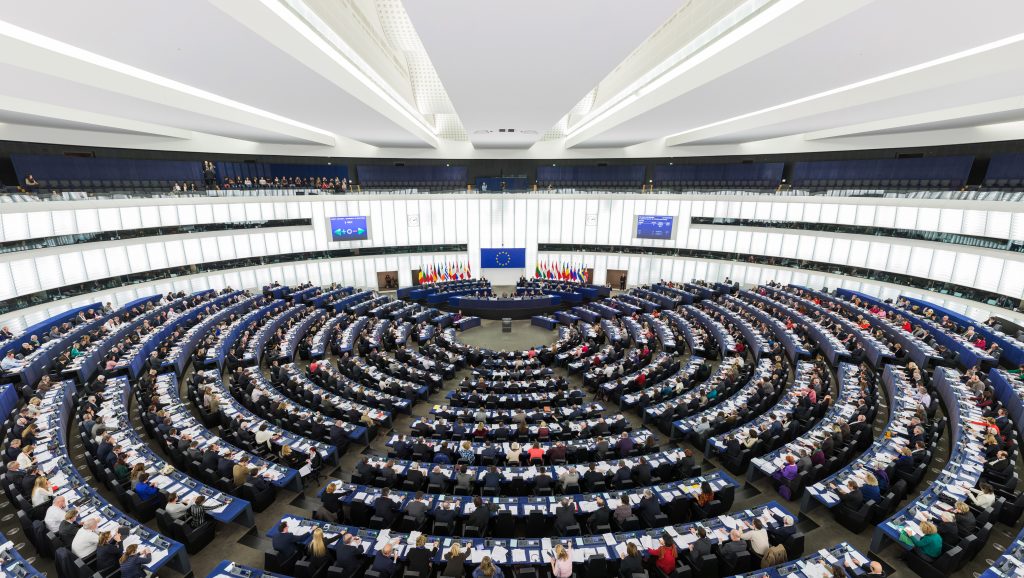EU Environment Council proposed emissions targets ‘way short’ of climate commitments

October 13th, 2017
Ireland’s support of loopholes and less ambitious emissions targets at today’s EU Environment Council meeting will only “drive up” the costs of climate change, Ireland’s leading climate expert has warned.
Commenting on the proposed text of the Effort Sharing Regulations (ESR) being negotiated at the meeting, Professor John Sweeney criticised Ireland’s support of the Council’s proposals.
The ESR sets national emission reduction targets for EU Member States for the period 2021-2030 for the transport, buildings, agriculture and waste sectors, which combined account for roughly 60 per cent of total EU emissions.
The Council has agreed on a starting point for the 2030 ESR based on the average emissions of each Member State from 2016 to 2018, with each member’s annual reductions targets ranging from zero to 40 per cent below 2005 levels.
As emissions in five countries failing their 2020 obligations, including Ireland, are expected to be higher than their 2020 targets, experts warn that this proposal would reward noncompliance with 2020 targets and inflate the total allowable carbon budget.
Germany had put forward a proposal to address this issue and ensure that countries that miss their 2020 target must begin their 2030 emission reduction trajectory from the level of their 2020 target, however, the idea was not adopted by the Council.
Speaking at the meeting this morning in Luxembourg, Climate Action and Environment Minister, Denis Naughten, TD said that Ireland is “fully committed” to supporting the overall EU reductions target of at least 40% by 2030 compared to 1990.
He said that this is achievable through the Council’s proposal, and warned that any changes to the proposed starting emissions level would leave Ireland’s targets “unachievable and unaffordable”.
“It is essential that these key elements of the proposal, in particular on the starting point and on flexibility options, are maintained,” he said.
Loopholes and Flexibilities
Prof Sweeney, however, said that our focus on loopholes will “drive up the financial, political and social costs of severe climate impacts”. As the Councils’s position currently stands, Ireland would essentially only be required to cut its emissions by one per cent up to 2030.
“The text as it currently stands will also be a missed opportunity for Ireland to reap the many co-benefits of reduced emissions, such as improved soil, lower health costs and enhanced air quality,” he added.

The ESR will now be negotiated with the European Parliament
Roland Joebstl, Policy Officer for Energy and Climate at the European Environmental Bureau (EEB) said that Ireland’s support of the Council’s proposals was “highly irresponsible” and will delay real climate action “not just for Ireland but for the whole of the EU”.
“All sectors must contribute and pull the brakes on unsustainable practices and a continuation of the business as usual,” Mr Joebstl added.
Environmental NGO Transport and Environment said that the Council’s decision will “weaken” the ESR and result in a “net increase of carbon emissions”. The Brussels-based group called on the European Parliament to “resist national governments’ watering down of the draft” in future negotiations over the final wording of the ESR.
The European Parliament previously voted for the trajectory to start in 2018 as most Member States emissions levels are falling as they aim to reach their 2020 targets. Experts say that this will ensure that most Member States would be starting from a higher baseline and lead to higher emissions reductions targets up to 2030.
Safety Reserve Levels
The proposed safety reserve provision allows for Member States to carry-over unused pollution permits from the period to 2020 to the period 2021 to 2030. This morning, the Council agreed to increase the proposed safety reserve from 100 megatonnes (MT) to 115 MT.
Several larger countries on track to meet their 2020 emissions targets, including Germany and the Netherlands, had outlined their preference to shrink this figure to 70MT so as not to affect the “environmental integrity” of the proposal.

The Council also adopted new flexibilities proposed for regulation on land use, land-use change and forestry (LULUCF)
Carlos Calvo Ambel, analysis and climate manager at T&E, said that the Council’s decision “falls way short of the commitments of the Paris agreement”.
This regulation goes beyond climate,” he added. “Today EU governments missed an opportunity to promote cleaner air, greater innovation, lower energy bills and more livable cities.”
Irish Lobbying
A study released by Carbon Market Watch and Transport & Environment in April examined the policy position of member states in ESR negotiations.
The report found that Ireland had been lobbying to “further weaken” the Commission’s proposal by moving the baseline year from 2020 to 2021. “The country is still trying to stall reduction efforts for another decade,” the report stated at the time.
This change would allow for an additional 249MT of emissions to be released across Europe up to 2030, the report found. This is almost equal to the annual emissions of the Canadian oil-producing province of Alberta.
The report also found that Ireland is likely to earn up to 10 per cent of the 280 million forestry credits on offer, and almost one-fifth of the ETS flexibility.
The Council also adopted new flexibilities proposed for regulation on land use, land-use change and forestry (LULUCF) and will discuss issues around the EU’s non-compliance with the Aarhus Convention later today.
[x_author title=”About the Author”]







